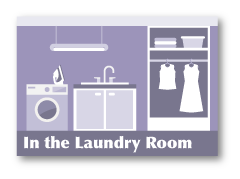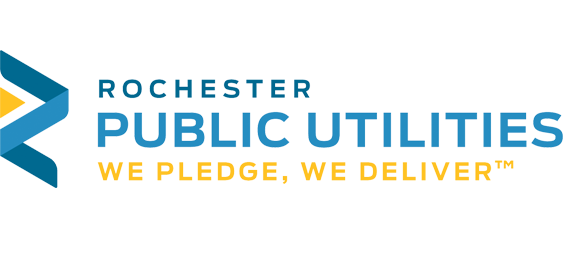Conserving our natural resources and being a good environmental steward is a core value at RPU. Energy and water conservation efforts help to preserve our planet's natural resources, reduce air emissions, delay the need for additional generating facilities, reduce the need to purchase expensive power during peak demand periods, and promote a healthy environment.
Over the past ten years, by working with residential and commercial customers, we yielded water savings of over 84,350,839 gallons and reduced electric consumption by 306,844,440 kilowatt-hours. In addition, we annually sponsor a community-wide Arbor Day celebration, support local tree planting efforts and other local environmental events.
Energy Conservation
Energy Usage
Electricity use is on the rise in most homes. One reason we’re using more electricity is because we’re using more equipment and gadgets. Along with our traditional home appliances we have computer systems, entertainment centers, video games, battery chargers for our cell phones and MP3 devices, and the list continues to grow!
Before you turn on your television, or plug in your new refrigerator, take a minute to think about how much electricity it will use. How much does it impact your utility bill? Does your bill seem high lately and you don’t know why? You can solve the mystery by learning basic measurements of electricity and by using the handy Energy Usage Chart found in this brochure. Remember, the chart provides average use – energy-efficiency appliances will use less, older models will use more.
Vampire Power
Vampire Power is a phenomenon most of us passively permit. It is a plague that consumes electricity while draining your wallet and polluting the atmosphere in the process. A vampire load is the power that is sucked from a piece of electronic equipment when it is seemingly turned off but still in standby mode, or not in use. A growing number of household electrical devices are designed to draw power 24 hours a day, seven days a week. Even when they are turned “off” these devices continue to use electricity to operate features such as clocks, timers, and touch pads, or to receive signals from remote controls. To learn more about Vampire Power, download this brochure.
Energy Conservation
The following are some low-cost, easy-to-do energy conservation steps! To find more ways to save, have a home energy audit done to assess where energy efficient changes can be made. RPU offers energy audits through our Neighborhood Energy Challenge program.

Saving Energy In the Kitchen
- Cover liquids and wrap your foods before storing them in the refrigerator. Moisture released from uncovered foods and liquids make the compressor work harder.
- Check your refrigerator and freezer door gaskets by placing a dollar bill between them and closing the door. If the bill pulls out easily, it suggests either a gasket or door adjustment problem.
- Make sure the temperature in your refrigerator is set correctly at 38°F.
- Don’t open your refrigerator door too often! Every time the door is opened, up to 30% of the cooled air can escape.
- Vacuum your refrigerator condenser coils every six months.
- Use microwaves, toaster ovens, and slow cookers. These use 75% less energy than an electric oven.
- No peeking in your oven to check on your food; you can lose 25–50° or up to 30% of the heat.

Saving Energy In the Living Areas
- Summer sunlight can heat up your home quickly. Close the shades on the south and west side of your home during daylight hours.
- Use a fan in conjunction with air conditioners to avoid having to set the air conditioner too low. Turn off the fans when you leave the room as fans cool people through wind-chill but do not cool the room.
- Hunt Vampire Power with a Kill A Watt® meter! Learn how much energy and money can be saved by replacing, unplugging, or using a smart power strip. RPU has Kill A Watt® meters that you can use in your home for free. Call 507.280.1500 to reserve one today.
- Weatherstrip or caulk around loose-fitting exterior door jambs and windows.
- Install a programmable thermostat; limit heating to 68° and cooling to 78°.
- Change the filter on your HVAC system every month.
- Have a professional central air conditioner clean and tune performed. You can also receive a $25 rebate through RPU’s CONSERVE & SAVE® program.
- Replace incandescent lightbulbs with Energy Star® LED bulbs.
- Reduce the number of lights you are using. Turn off unneeded lights.
- Use a table lamp for reading instead of turning on all the room lights.
- Unplug rarely used appliances such as a TV located in the spare bedroom.

Saving Energy In the Laundry Room
- Wash only full loads of laundry, or set the machine for the correct sized load.
- When possible, wash clothes in cold water.
- When purchasing a new clothes washer, buy an Energy Star® high-efficiency model. They use 45% less water which reduces water heating costs. They also spin the clothes better for shortened drying times.
- Lower the temperature of your water heater to 120°F.
- Dry your clothes on a clothesline instead of using a clothes dryer.

Saving Energy Outdoors
- Use LED holiday lights and decorations. They are 75% more efficient and last up to 25 times longer.
- For outdoor decorations, use a timer or look for timers that include a light sensor for easier operation!
- Keep the outdoor part of your central A/C unit clean to help it operate more efficiently. Seeds, grass clippings, dust, and brush growing too close to your condenser can clog it and make it work harder.
- Plant a tree! If you plant a tree today on the west side of your home, in five years your energy bills should be 3% less. In 15 years the savings will be nearly 12%.
Click here to download RPU's Energy Conservation Tips Brochure.
Water Conservation
The water you use doesn’t appear magically. It is carefully pumped from our clean, safe, and reliable groundwater aquifers and piped directly into your home. Water is a valuable resource that shouldn’t be wasted. Besides, you’re paying for every drop whether it’s used or wasted! Water conservation is a good way of life – let’s practice it together!

Saving Water In the Kitchen
- When cooking, peel and clean vegetables in a large bowl of water instead of under running water.
- Don’t continuously run the water when washing and rinsing dishes.
- Only run the dishwasher when it's full.
- When buying a dishwasher, select an Energy Star® model with a "light-wash" option.
- Only use the garbage disposal when necessary (composting is a great alternative).
- Repair leaking faucets.
- Install WaterSense® water-saving faucet aerators.
- Keep a bottle/jug of drinking water in the refrigerator – running tap water to cool it off for drinking water is wasteful.

Saving Water In the Bathroom
- Take short showers instead of baths.
- Turn off the water to brush teeth and soap up in the shower. Fill the sink to shave.
- Repair leaking faucets.
- Install WaterSense® water-saving faucet aerators and low-flow showerheads.
- Repair leaky toilets. Add 12 drops of food coloring into the tank, and if color appears in the bowl one hour later, your toilet is leaking.
- When needed, replace your toilet with a WaterSense® high-efficiency model.
- 30% of home water use is flushed down the toilet – avoid unnecessary flushing and you’ll save big.
- Don’t use your toilet as a wastebasket.

Saving Water In the Laundry Room
- Wash only full loads of laundry, or set the machine for the correct sized load.
- When purchasing a new clothes washer, buy an Energy Star® high-efficiency model, which uses 45% less water than regular washers.
- Repair leaking faucets.
- Hang towels to dry and use them multiple times instead of washing after each use.

Saving Water Outdoors
- Apply mulch around shrubs and flower beds to reduce evaporation, promote plant growth, and control weeds.
- Maximize the use of natural vegetation and establish smaller lawns. Consider planting more trees, shrubs, ground covers, and less grass.
- Add compost or an organic matter to soil as necessary, to improve soil conditions and water retention.
- When mowing your lawn, set the mower blades to 2-3 inches high. Longer grass shades the soil improving moisture retention, allowing it to grow thicker and develop a deeper root system.
- Only water the lawn when necessary. Step on the grass. If it spring back up, it doesn’t need watering. If it stays flat, the lawn is ready for watering. Water your lawn during early morning or later evening hours to minimize evaporation and to ensure the water get soaked up by the lawn.
- Replace a standard clock timer with a WaterSense® labeled, weather-based irrigation controller, which can save an average home nearly 8,800 gallons of water annually.
- Collect rainfall in a rain barrel for irrigation.
- When washing a car, wet it quickly, then use a bucket of soapy water to wash the car. Turn on the hose to final rinse. Or take your car to a self-serve car wash, which will use half the water of a home wash.
- Use a broom to clean walkways, driveways, decks and porches, rather than hosing off these areas.
- Repair leaking outdoor faucets, pipes, and hoses.
Click here to download RPU's Water Conservation Tips Brochure.
